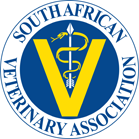Original Research
Genetic diversity of Hepatozoon (Apicomplexa) from domestic cats in South Africa, with a global reassessment of Hepatozoon felis diversity
Submitted: 10 October 2018 | Published: 20 June 2019
About the author(s)
David J. Harris, CIBIO/InBIO, Centro de Investigação em Biodiversidade e Recursos Genéticos, Vairão, Portugal; and Departamento de Biologia, Faculdade de Ciências da Universidade do Porto, Porto, PortugalAli Halajian, Department of Biodiversity, University of Limpopo, Sovenga, South Africa
Joana Santos, CIBIO/InBIO, Centro de Investigação em Biodiversidade e Recursos Genéticos, Vairão, Portugal
Kgethedi M. Rampedi, Agricultural Research Council Animal Production Institute, Irene, South Africa
Raquel Xavier, CIBIO/InBIO, Centro de Investigação em Biodiversidade e Recursos Genéticos, Vairão, Portugal
Abstract
Genetic diversity within partial 18S rRNA sequences from Hepatozoon protozoan parasites from domestic cats in South Africa was assessed and compared against published data to assess global biogeographic patterns. Multiple distinct haplotypes of Hepatozoon felis were identified, as well as an unrelated Hepatozoon lineage. Hepatozoon felis genetic diversity globally is very high, indicating a likely complex of species. The recently described Hepatozoon apri from wild boars is closely related to some lineages of H. felis. Sarcocystis and Babesia parasites were also detected. Since Hepatozoon felis is apparently a species complex, potential differences between genetically distinct forms need to be assessed. The finding of an unrelated Hepatozoon indicates that felids can be infected by more species of Hepatozoonthan currently known, and that trophic interactions may increase the number of Hepatozoon species found in carnivores. Genetic screening again is demonstrated to identify previously unrecognised parasites from vertebrate hosts.
Keywords
Metrics
Total abstract views: 2249Total article views: 2840
Crossref Citations
1. A 50-year-old redescription: molecular and morphometric characterization of Hepatozoon carinicauda Pessôa and Cavalheiro, 1969 in the brown-banded water snake Helicops angulatus (Linnaeus, 1758)
Fabiane R. de Paula, Amanda M. Picelli, Lívia Perles, Marcos R. André, Lúcio A. Viana
Parasitology vol: 149 issue: 11 first page: 1468 year: 2022
doi: 10.1017/S0031182022000919
